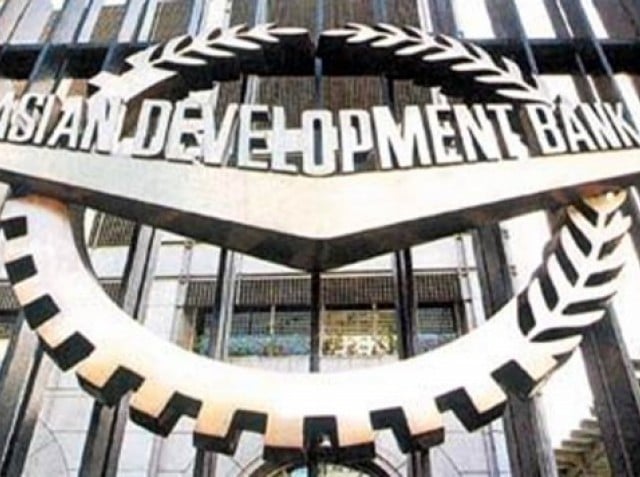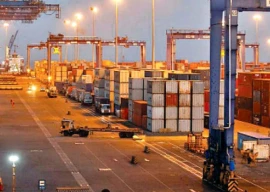
Nakao was addressing a press conference at the conclusion of his two-day visit to Pakistan alongside Finance Minister Ishaq Dar. The ADB president was here to attend the 15th Central Asia Regional Economic Cooperation (CAREC) Ministerial Conference.
Pakistan asks AIIB to fund Diamer Bhasha dam
“The governance issue is very important and it means addressing issues of corruption, tax avoidance and money laundering,” said the ADB president while responding to a question. He, however, maintained that these issues were not only specific to Pakistan, as these were general issues. Nakao said that his bank was making serious efforts to make sure that there is no corruption in ADB-financed projects.

Nakao is the second global personality after IMF Chief Christine Lagarde who advised Pakistan to take the corruption issue head on.
The president said that ADB alone cannot fund the mega Diamer-Bhasha dam project unless other partners joined hands. The cost of the project is around $15 billion, which the ADB president said was “beyond its capacity”. He said that the project was very important for improving the supply of energy and the agriculture sector.
ADB, Pakistan ink deal
Both Pakistan and ADB also signed loan agreements for $250 million to boost cross-border trade activity with neighbouring countries. The Regional Improving Border Services (RIBS) Project will improve border crossing procedures and time for cargo and passengers at three key land border crossing points of Chaman, Torkham and Wagha, according to the ADB.
ADB’s Country Director Werner Liepach and Tariq Bajwa, Secretary, Economic Affairs Division, signed the agreement. “The project will address trade and transport bottlenecks caused by poor infrastructure, facilities and improve procedures at land border crossings with Afghanistan and India,” said Liepach.
Completion of Diamer-Bhasha dam stressed
The project will construct modern border crossing point infrastructure and facilities, compliant with internationally accepted standards in Chaman and Torkham-the two main transit stations for cross-border trade with Afghanistan-as well as in Wagha, the only open land route connecting South Asia to Central Asia. The works will include construction of the border crossing point infrastructure, deployment of security trade facilitation equipment and ICT equipment to link each border crossing point with the central customs and security databases.
Responding to a question, the president expressed hope that the tension between India and Pakistan would not affect Turkmenistan, Afghanistan, Pakistan and India (TAPI) gas pipeline projects, which is expected to export up to 33 billion cubic meters of natural gas per year. He said the project was at detailed feasibility stage and parties should now work to start arranging finances. Nakao said that the ADB may also lend money for this project.
The ADB president advised Pakistan to stay focused and consolidate economic gains that the country made during the past three years under the IMF programme. He said that ADB would increase its lending to Pakistan aimed at supporting its infrastructure and budget financing needs.
Diamer-Bhasha Dam: Construction to begin next year
This year the ADB will lend $1.46 billion to Pakistan including $300 million, another loan for energy sector reforms, said Nakao, adding that the country needs to improve its project implementation mechanisms, as numbers will not make a difference until people start getting benefit from them.
At the Ministerial Conference, CAREC Ministers agreed to formulate a new long-term strategy for CAREC to enhance its relevance in the context of changing economic and development conditions. The CAREC Secretariat will initiate work on CAREC 2025 immediately with a view to completing it by 2018.
The CAREC members comprise Afghanistan, Azerbaijan, the People’s Republic of China (PRC), Georgia, Kazakhstan, Kyrgyz Republic, Mongolia, Pakistan, Tajikistan, Turkmenistan and Uzbekistan.
In a joint statement, the CAREC Ministers noted progress on transport, having reached 93% of their road building or upgrading target to 2020 and adopting a road safety strategy for 2017-2030 that aims to at least halve road fatalities in CAREC by 2030 compared to 2010 levels. This will save an estimated 23,000 lives.
Along the six CAREC transport corridors, 7,230 kilometres of road and more than 4,500 kilometres of rail have been built or rehabilitated. The ministers also adopted a railway strategy to 2030, prioritising six railway corridors aligned with trade routes.
They also noted progress on major energy projects coming on stream. 3,835 kilometres of power transmission lines have been constructed during 2013-2015.
Published in The Express Tribune, October 27th, 2016.
Like Business on Facebook, follow @TribuneBiz on Twitter to stay informed and join in the conversation.

1720097164-0/BeFunky-collage-(9)1720097164-0-165x106.webp)


1734567485-0/Untitled-design-(54)1734567485-0-165x106.webp)

1722065362-0/BeFunky-collage]-(56)1722065362-0-270x192.webp)










COMMENTS (1)
Comments are moderated and generally will be posted if they are on-topic and not abusive.
For more information, please see our Comments FAQ